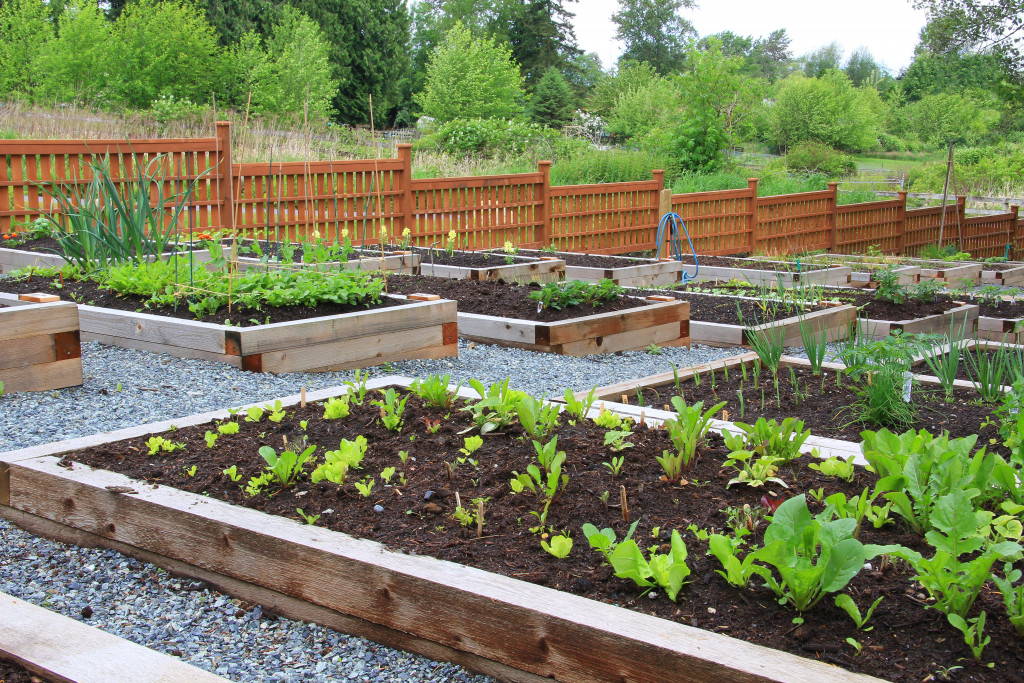- Identify niche and target markets to determine what to grow and sell.
- Research demand for products in the local market and competitors for differentiation.
- Develop a business plan including legal structure, timeline, and permits/licenses.
- Design the garden, prepare the soil, and consider vertical & greenhouse options.
- Market and sell products with strong branding, online presence & incentives.
After two years of robust growth, the farm sector income is predicted to drop in 2023. Net farm income, which measures overall profits, will likely decrease by $25.9 billion from 2022 to 2023 – an annual reduction much steeper than its prior increase of $46.5 billion in 2021 and a projected hike of $21.9 billion!
Are you an entrepreneur with a green thumb, dreaming of turning your passion for gardening into a thriving business? Embrace the art of self-sustenance and create beautiful, fulfilling landscapes with a home-based commercial garden. This blog post will guide you through the essential steps to launch a successful gardening venture while reaping the benefits of staying close to nature and being your boss. So, get your hands dirty and dive into the journey of starting a home-based commercial garden!

Identify Your Niche and Target Market
The first step in creating a successful home-based commercial garden is determining the plants, fruits, vegetables, or herbs you want to grow and sell. Consider your expertise, passion, and what grows well in your area.
Research Demand for Products
Research the demand for organic produce, exotic plants, or native species in your local market. By establishing who your prospective clients are, whether they are homeowners, restaurateurs, or garden centers, you can customize your offerings to their specific needs and preferences.
Research Competitors
You should also research competitors nearby and determine the best way to differentiate your products and services. Competitors may be able to provide products or services at a lower cost, so make sure you can offer something unique that sets your business apart.
Develop a Comprehensive Business Plan
A solid business plan is the backbone of any successful business. Map out your financial forecasts, marketing strategies, and growth potential. Analyze your competition and plan on how to differentiate yourself from them. Determine the scale of your garden, keeping in mind potential future expansion.
Legal Structure
The business plan should also include the legal structure of your business, any necessary permits or licenses, and a timeline for starting and scaling your operations. Showing potential investors or partners your business plan will also help establish credibility and seriousness toward your venture. Additionally, reviewing your plan can help you monitor the success of your business and make necessary adjustments.
Designing Your Garden and Preparing the Soil
Create a layout of your land, marking areas dedicated to different plants or crops, considering factors like sunlight, water, and nutrient requirements. Plan for adequate irrigation and drainage systems, and invest in quality tools to make garden work more efficient.
Vertical Garden
Explore options like vertical gardening or raised beds if you have limited space. Test your soil to identify any nutrient deficiencies that may affect plant growth and take steps to improve its quality by adding organic matter like compost or well-aged manure.
Greenhouse Setup
Investing in a greenhouse will allow you to control the climate and protect your crops from potential threats like pests and diseases. A greenhouse can extend your growing season and enable you to experiment with different plants or crops. In this situation, you can set up a durable DIY hoop house in your backyard. It is affordable, and you can set it up yourself. It also does away with the need to use herbicides and pesticides on the produce.

Marketing and Selling Your Products
Effective branding and marketing are crucial to growing your business. Develop an attractive logo and promotional materials to establish brand identity. Network with potential clients and attend community events, local markets, or gardening expos to showcase your offerings.
Online Presence
Building a strong online presence through social media channels or an e-commerce website can significantly increase your reach, boosting sales and attracting loyal customers. Join local gardening groups, attend workshops, and stay informed about industry trends to remain relevant and competitive. Leverage customer feedback to refine products and services and make improvements that meet consumer needs.
Rewards and Incentives
Develop incentives or rewards programs for loyal customers who purchase frequently or refer others. Offering free samples, discounts, or special deals can encourage repeat business and word-of-mouth referrals. Follow up with leads promptly and consistently provide excellent customer service.
Starting a home-based commercial garden is a venture that promises personal and professional fulfillment in conjunction with financial rewards. As an entrepreneur, your passion, creativity, and hard work will drive your garden’s success. Following these essential steps and committing to continuous learning and development can transform your love for gardening into a sustainable and lucrative business. So, roll up your sleeves and immerse yourself in the world of commercial gardening, paving the way for a flourishing future.

